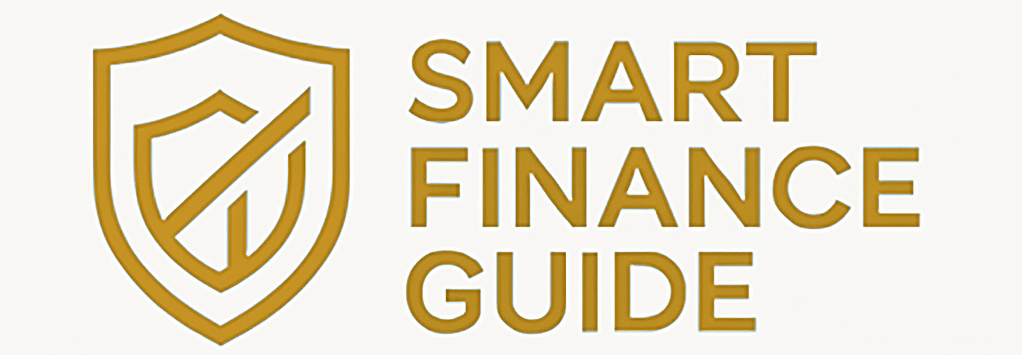Being your own boss offers incredible freedom — flexible hours, autonomy, and the chance to build something truly yours. But with that freedom comes responsibility, especially when it comes to protecting your finances and livelihood.
As a freelancer or self-employed professional, you don’t have access to the typical safety nets that come with traditional employment — like employer-provided health coverage, paid time off, or a company retirement plan. That’s why having the right insurance for freelancers is not just a smart move — it’s essential.
In this guide, we’ll explore the core types of Insurance for Freelancers, how each one protects your career, and how to find affordable plans tailored to self-employed workers.
Why Freelancers Need Insurance More Than Ever
Freelancers are exposed to a wide range of risks that traditional employees are often shielded from. Without proper coverage, a single illness, accident, or legal dispute could derail your financial stability.
When you’re self-employed:
- You are the business — your ability to work is your income.
- There’s no employer to step in if something goes wrong.
- Legal or medical setbacks can quickly become financial disasters.
Having insurance for self-employed professionals means securing peace of mind, so you can focus on growing your business without fear of the unexpected.
1. Health Insurance for Freelancers
Health insurance is arguably the most critical type of coverage. A single trip to the emergency room or a prolonged illness can result in tens of thousands of dollars in medical bills.
Insurance for Freelancers, where to get it:
- HealthCare.gov: Access to ACA-compliant plans and income-based subsidies.
- Freelancers Union: Group health plans in select states.
- Private brokers: Use sites like Policygenius to compare plans.
- Short-term plans: Temporary coverage with limited benefits.
Pro tip: You may qualify for tax credits based on your income, significantly reducing your monthly premium.
2. Disability Insurance
If you’re unable to work due to illness or injury, disability insurance provides a steady income stream to cover bills and essential expenses.
Types:
- Short-term disability: Typically covers 3 to 6 months.
- Long-term disability: Can cover multiple years or permanent loss of income.
Make sure your policy includes “own occupation” coverage — meaning it protects your ability to do your specific job, not just any work.
3. Professional Liability Insurance (Errors & Omissions)
This type of Insurance for Freelancers protects you from claims of negligence, errors, or dissatisfaction with your services — even if the claim is baseless.
You should have it if you:
- Offer consulting, design, writing, or IT services.
- Manage client data or strategies.
- Work under contracts with deliverables.
Coverage includes:
- Legal defense costs
- Settlements or judgments
- Court fees
Even a minor client dispute can escalate into legal trouble — this coverage helps you handle it with minimal disruption.
4. General Liability Insurance
If your freelance work involves physical interaction with clients, travel, or equipment setup, general liability insurance is essential.
Covers:
- Accidental property damage
- Bodily injury (e.g., a client trips over your equipment)
- Libel or slander claims
This is a must-have for photographers, event planners, and consultants who meet clients in person or work in rented spaces.
See also: What Is Life Insurance and Why You Should Consider Getting 1.

5. Business Property and Equipment Insurance
Your gear is often your most important business asset. Whether it’s a laptop, camera, tools, or editing suite — replacing it can be costly.
Options:
- Add a business rider to your homeowners or renters policy
- Purchase standalone business insurance for freelancers
This coverage protects against:
- Theft or burglary
- Fire or water damage
- Accidental drops or equipment failure
Especially important for digital nomads or mobile professionals who work on the go.
6. Cyber Liability Insurance
Freelancers who store sensitive client data or run their business online need protection from digital threats.
Cyber liability insurance covers:
- Data breaches and hacks
- Ransomware attacks
- Legal costs from client lawsuits
- IT system repair or replacement
This is particularly relevant for developers, marketers, finance professionals, and anyone dealing with online transactions or private data.
7. Life Insurance and Insurance for Freelancers.
Not always top of mind, but critical if you have a family or financial dependents. If the worst happens, life insurance ensures your loved ones are financially supported.
Options:
- Term life insurance: Affordable coverage for a set period (10–30 years)
- Whole life insurance: More expensive, includes a cash value component
Best for freelancers:
Term life insurance offers excellent value, especially for young professionals or those with mortgages, loans, or children.
8. Retirement Planning (Bonus: Not Insurance, But Just as Crucial) Insurance for Freelancers.
As a freelancer, you are responsible for building your own safety net for the future. Fortunately, there are tax-advantaged retirement plans designed for the self-employed.
Top options:
- Solo 401(k): Ideal for freelancers with no employees, allows high contributions.
- SEP IRA: Easy to set up, great for high earners.
- Roth or Traditional IRA: For flexible, tax-advantaged saving.
Start small if needed — even $50/month adds up over time. As your income grows, increase your contributions to secure your future.
Where to Find Affordable IInsurance for Freelancers
Finding the right freelance insurance doesn’t have to be complicated. These platforms are designed with independent workers in mind:
- Policygenius: Shop and compare policies in one place.
- Next Insurance: Specializes in affordable freelancer policies.
- Hiscox: Great for creative and consulting professionals.
- Ladder Life / Haven Life: Fast, digital life insurance.
- HealthCare.gov: Subsidized health plans under the ACA.
Also check with industry-specific associations or unions, like the Freelancers Union, for group benefits and legal support.
Tips to Reduce Insurance Costs
- Bundle coverage with a single provider for discounts.
- Compare quotes annually — rates change.
- Raise deductibles to lower monthly premiums.
- Maintain good credit and health — both can reduce premiums.
- Deduct premiums on your taxes — speak to your accountant.
See also: 25 Essential Things to Know About Car Insurance in the U.S. (2025)
Final Thoughts: Build Your Safety Net, Build Your Freedom
The path of self-employment is full of opportunity — but also unpredictability. Having insurance for freelancers in place means you can take bold steps, pursue big clients, or expand your business without fear of setbacks wiping out your progress.
Insurance doesn’t limit your freedom — it empowers it. By protecting your income, assets, and well-being, you’re building a stronger foundation for long-term success.
Whether you’re just starting your freelance journey or you’re a seasoned solopreneur, now is the time to protect what you’ve worked hard to build.
FAQ – Insurance for Freelancers and the Self-Employed.
Do freelancers really need insurance if they work from home?
Yes. Even if you work from home, insurance protects you from unexpected events like medical emergencies, lawsuits, or equipment damage. Without employer benefits, freelancers must build their own safety net.
What’s the most important type of insurance for freelancers?
Health insurance is typically the most essential — and expensive — type. It protects you from major medical costs and helps avoid financial ruin in the case of illness or injury.
What is disability insurance, and why does it matter?
Disability insurance replaces part of your income if you’re unable to work due to injury or illness. It’s especially critical for freelancers, who don’t have paid sick leave or employer coverage.
What kind of liability insurance do independent professionals need?
Most need professional liability (also called errors & omissions insurance) to cover claims of negligence, mistakes, or missed deadlines. General liability may also be needed if you meet clients in person.
Can freelancers get affordable coverage?
Yes. Many qualify for health insurance subsidies through Healthcare.gov. Freelancers can also find affordable options through platforms like Policygenius, Next Insurance, or Freelancers Union.

